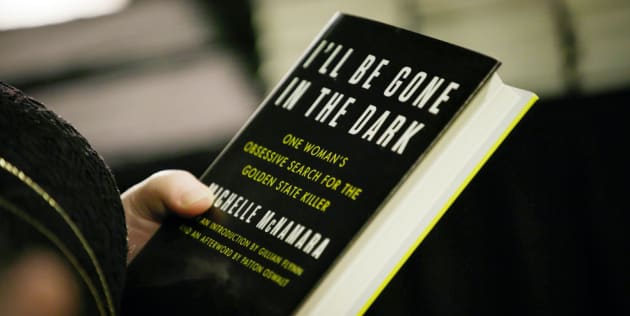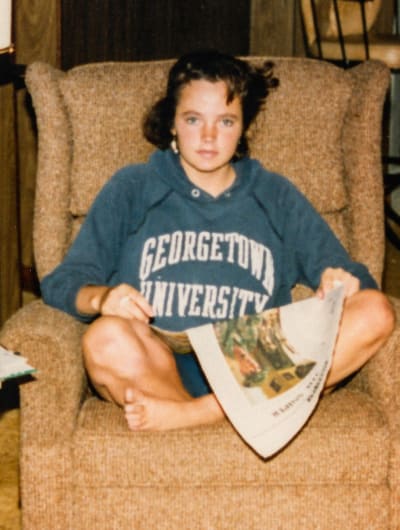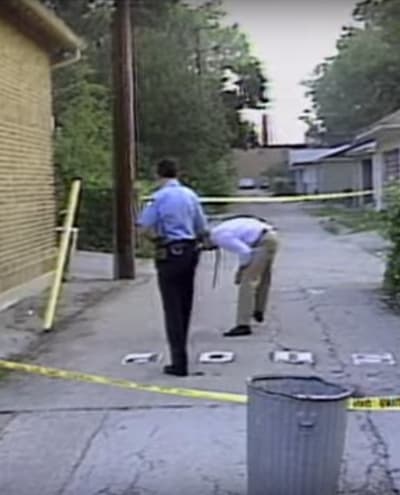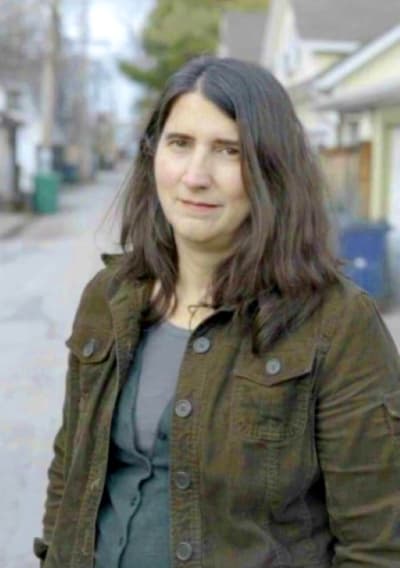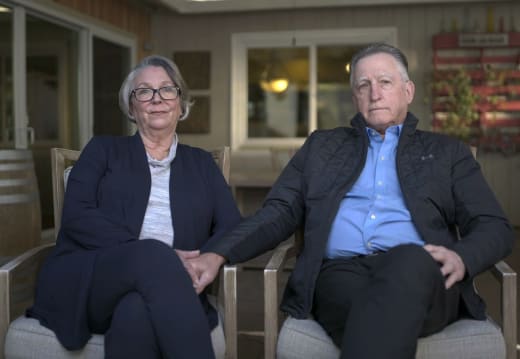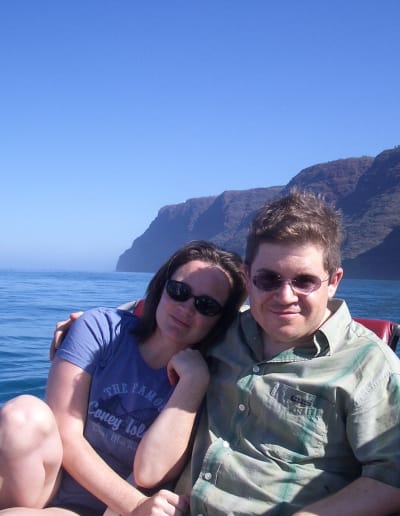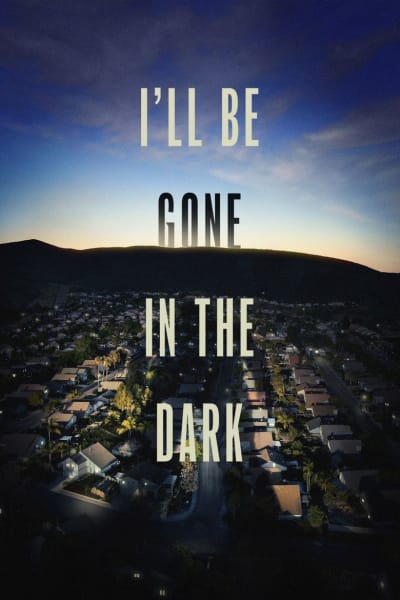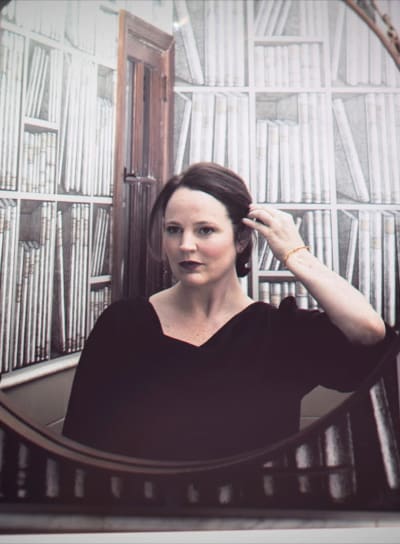Michelle McNamara devoted her life to finding justice for the victims of the Golden State Killer, so it’s only fitting that filmmakers and HBO are presenting a final look at the case to hear the survivors get the last word on their tormentor.
We had a chance to chat with director Elizabeth Wolff about filming the episode and being a part of the process that wraps the long and arduous journey to justice.
Enjoy the full interview below.
This special episode is both the beginning of Michelle’s journey and an end for the victims of the Golden State Killer. How did that direction come about for this episode?
The beginning and the end. I am a fan of ending stories at the beginning. It is something that I am always drawn to in books I read, in projects I work on myself.
It’s the facts that we were telling both the end of the story for the survivors of the Golden State Killer and Michelle’s origin story at the same time really came about because, well, on the one hand, with the Golden State Killer, our series aired last summer, at the same time that he was being sentenced.
We didn’t have that part. We didn’t film that part. That wasn’t included in our series. But when we tuned in, and we watched those really emotional four days of sentencing, we really felt like it was so powerful to see our survivors that we had gotten to know really be able to confront their victim.
We really wanted to be able to show that they got to have this cathartic “resolution,” if you will.
Then, at the same time, Michelle’s origin story… Michelle, beginning with her learning about the Kathleen Lombardo case when she was a teenager, was something that she wrote about extensively in her book and was something from day one that we wanted to include in the series.
We were able to include it in a small scene in episode two, just as it being her origin story. But we really, all along, wanted to explore the case and to explore Michelle’s investigation of the case, which begins in about 2013.
We had actually, during the production, I would say, we went out, and we filmed with Chris Lombardo. Kathy’s brother. We filmed in Oak Park. We got in touch with the Oak Park PD.
But in the process of editing it, the series was so complicated, and Kathleen’s case was so complicated that there really wasn’t an opportunity for us to go into the level of detail that we wanted to.
When we had a chance to do this special episode, we all knew immediately that we would go into the Kathy Lombardo stuff and that we would end the survivor’s story.
We didn’t realize in the beginning, but it became very apparent once we started working on it that there were some parallels to these stories. This was all about this idea of resolution or lack of resolution.
The survivors got to have some semblance of resolution. But, of course, as Bob says in our episode, it doesn’t go away. The fact that he is sentenced and is going to jail for the rest of his life and the fact that they got to confront their attacker doesn’t mean that this is disappearing.
The fact that they were attacked will be with them forever. But we get to explore what that weight off their shoulders is like, while, at the same time, exploring, really, how it hangs on people like the Lombardos and like Grace Puccetti, people who have not seen justice with their own cases.
I’m glad you said that because so often, survivors… First of all, they’re called victims whenever people talk about them, which really belittles their experience.
I’ll Be Gone in the Dark went a long way to give voices to these people. That’s what podcasters and people like Michelle have always done. You did a really good job throughout the whole series.
Thank you.
In this special episode, how important was it for you to offer this addendum to their journey once the sentencing took place? I mean, how did that make you all feel, as the producers of this show and being so involved to offer this to them?
Oh, it was extraordinarily meaningful. We all had wrapped our production, and we’re doing our own various things during the pandemic, during the sentencing phase. We all tuned in and spent the four full days watching this.
We were so invested and really had a great sense of empathy watching the survivors that we had gotten to know be able to confront their attacker.
We were so touched and moved by it. If we’ve all touched and moved by it, we knew it was an important coda to be able to share with the viewers and to also be able to allow that the survivors to really… In the series, they have the last word. But in that sentencing, they really got the last word because they got to confront him.
That was so powerful. It was really important. This whole series is about empowering the survivors, and how could we not include the most empowering part of their story?
When we called them, many of them were very, very interested in sharing this because it was such an important part of their journey. I mean, I’m just so grateful that HBO gave us the opportunity to do this special episode.
Also, with Kathy Lombardo’s murder, it’s still hanging out there. How do you hope that bringing light to that case, especially in contrast to how outside investigation brought a close to the Golden State Killer case
How do you hope that that will influence the powers that be there in Oak Park, who aren’t playing along and offering information and helping these people find the closure that they need by continuing the case?
Well, I think our goal in this special episode, with telling Kathy’s story, is the same goal that Michelle had when she set out to write an article and do a book about the Golden State Killer.
Which is, if we, as members of the media, can bring attention to this case, to remind the general public, and law enforcement, and local officials that there are cases like this that mean something to not just to the victims’ families, to survivors, to more than just them, to the teenagers who found their body, to neighbors.
If we can show the ripple effect of the impact of these crimes and what it means when these cases go unsolved, our hope, generally, is to get more people to recognize that they should devote resources to solving cold cases, and, specifically, to get Oak Park officials and law enforcement and people in the community who might know something or have a vantage point to help advance the case to do so.
As this special episode wraps, how do you think Michelle’s legacy will continue?
I think as just an inspiration for other people, other journalists, other writers, other concerned citizens to be a needle on the side of law enforcement but also where they can be a collaborator and to help solve these cases.
I mean, that’s what Michelle wants, ultimately, is justice for the victims by solving these cases. We found the email she wrote to her publisher about wondering how to end her book if the Golden State Killer wasn’t caught by the time she finished her book.
She said she wanted it to end… action for other citizen detectives. She said, “Inside, everyone looks to Sherlock Holmes.”
We use that at the end of our episode. Her exact line as a call to action that other people, whether they’re in law enforcement, or they’re local, or they’re concerned citizens, can devote their resources and attention to solving these cases. That’s what I hope her legacy is.
If Cathy Lombardo’s death propelled Michelle into her obsession, which ultimately led to James DeAngelo’s capture and convictions, how will this first directorial experience act as your launching pad?
Oh, wow. You couldn’t ask for a better directorial debut to be working with Liz Garbus. As me being a female filmmaker, she was somebody that I always wanted to work with. I’ve learned so much from her, both as a technical aspect of storytelling but also just how to be a mom and advanced your creative career. I had a baby during the making of the seventh episode.
Liz was so supportive and built a team around me to make sure that I could take the time I needed, but also so that I could do what I love. That’s an inspiration that I will take with me moving forward, both as a leader and also in how to manage my own life.
But also, in terms of the storytelling, I’m very interested in stories about women, in stories about personal engagement, and what women have to juggle in our society. I’m also really inspired by the ways in which, as documentarians, we can tell stories that are driven by narrative and action instead of expository storytelling.
I think that’s something that we really went into this series wanting to achieve. How can we make this feel more narrative than a traditional talking head documentary? That’s something that I want to do more of and explore in other subject matter.
Are there any topics that are on your radar right now that you’re hoping to dig into?
Yeah. I’m interested in the history of motherhood and the women’s rights movement in America. I’m interested in effective social and political action. I’m interested in really finding compelling characters in archives.
I think that there are a lot of archives out there that have really been unpacked. I’m also really interested in telling stories about writers and… all kinds of writers, like biographers and essayists, and the struggle that people have in telling stories about others and being creative themselves.
—————————————————-
I’ll Be Gone in the Dark: Special Episode airs Monday, June 21 at 10/9c on HBO and later streams on HBO Max.
Carissa Pavlica is the managing editor and a staff writer and critic for TV Fanatic. She’s a member of the Critic’s Choice Association, enjoys mentoring writers, conversing with cats, and passionately discussing the nuances of television and film with anyone who will listen. Follow her on Twitter and email her here at TV Fanatic.

